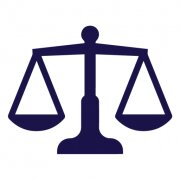Best Employment & Labor Lawyers in Argentina
Share your needs with us, get contacted by law firms.
Free. Takes 2 min.
Or refine your search by selecting a city:
List of the best lawyers in Argentina
About Employment & Labor Law in Argentina
Employment and labor law in Argentina is a comprehensive legal framework designed to protect the rights and obligations of both employees and employers. Rooted in principles of social justice, the Argentine legal system emphasizes fair employment practices, adequate working conditions, and the protection of workers' rights. This framework includes a wide range of regulations covering issues such as employment contracts, wages, working hours, occupational safety, collective bargaining, and termination of employment.
Why You May Need a Lawyer
There are numerous situations where individuals or businesses might need legal assistance in the field of employment and labor. Common scenarios include wrongful termination, workplace discrimination, harassment, non-payment of wages, disputes over employment contracts, breaches of collective agreements, and navigating the complexities of workplace health and safety regulations. Employers may also require legal help to ensure compliance with labor laws and to handle issues related to labor unions and employee negotiations.
Local Laws Overview
The employment and labor laws in Argentina are predominantly governed by the "Ley de Contrato de Trabajo" (Labor Contract Law) No. 20,744, the "Ley de Asociaciones Sindicales" (Law of Trade Unions) No. 23,551, and other supplementary statutes. Key aspects include:
- Employment Contracts: Contracts can be formalized or implied. Many employees have permanent contracts, although temporary contracts are also permitted under specific conditions.
- Working Hours: The standard working week is 48 hours, with overtime paid at a premium rate.
- Minimum Wage: Argentina establishes a statutory minimum wage which is regularly updated.
- Collective Bargaining: Unions play a significant role, with collective bargaining agreements often setting terms for salaries and working conditions.
- Termination: Dismissal of employees must be justifiable, and significant severance pay is required for unjustified termination.
- Leave Entitlements: Includes annual leave, maternity and paternity leave, and other relevant rights.
Frequently Asked Questions
What are my rights if I am unfairly dismissed?
If you believe you have been unfairly dismissed, you have the right to claim compensation. This includes entitlement to severance pay, which can be substantial, depending on your duration of service.
How can I prove workplace discrimination?
Proving discrimination can involve collecting evidence such as communications, eyewitness accounts, and any relevant documents. Legal advice can be instrumental in building a strong case.
What is the procedure for filing a complaint against my employer?
You can file a complaint with the "Ministerio de Trabajo, Empleo y Seguridad Social" (Ministry of Labor, Employment, and Social Security), which can provide mediation. Legal counsel can also guide you through the process.
What should I do if my employer is not paying me the minimum wage?
If your employer is paying less than the minimum wage, legal action can be taken to recover unpaid wages and enforce compliance with wage regulations.
Can I negotiate my employment contract terms?
Yes, negotiation is possible, especially if you hold a more senior position. Legal advice can be helpful to ensure that proposed terms align with best practices and legal standards.
How are disputes over collective bargaining agreements resolved?
Disputes are generally resolved through bargaining processes, often involving union representation and mediation to reach a mutually acceptable settlement.
Are foreign workers subject to the same labor laws?
Yes, foreign workers have the same rights and obligations under Argentine labor law, although there might be additional immigration-related requirements.
What is the role of labor unions in Argentina?
Labor unions are influential in protecting workers' rights, negotiating collective agreements, and representing workers in disputes with employers.
How many hours can I be required to work per week?
The legal maximum is 48 hours per week. Work beyond these hours is classified as overtime and should be adequately compensated.
What are the typical grounds for legally terminating an employee?
Common grounds include just cause related to performance or behavior, redundancy, or through mutual agreement. Legal advice can help in navigating terminations to ensure compliance with the law.
Additional Resources
Consider reaching out to the following resources for further guidance:
- Ministerio de Trabajo, Empleo y Seguridad Social: The government body responsible for labor regulations and enforcement.
- Unions and Syndicates: Provide support, information, and representation for workers.
- Professional Legal Associations: Offer directories of qualified labor lawyers.
Next Steps
If you're in need of legal assistance, you should start by consulting with a lawyer who specializes in employment and labor law. Look for legal professionals with a track record of handling cases similar to yours. They can provide tailored advice, help you understand your rights and obligations, and represent you in any legal proceedings or negotiations. Additionally, consider documenting your employment situation thoroughly, as detailed records can significantly strengthen your case.
Lawzana helps you find the best lawyers and law firms in Argentina through a curated and pre-screened list of qualified legal professionals. Our platform offers rankings and detailed profiles of attorneys and law firms, allowing you to compare based on practice areas, including Employment & Labor, experience, and client feedback.
Each profile includes a description of the firm's areas of practice, client reviews, team members and partners, year of establishment, spoken languages, office locations, contact information, social media presence, and any published articles or resources. Most firms on our platform speak English and are experienced in both local and international legal matters.
Get a quote from top-rated law firms in Argentina — quickly, securely, and without unnecessary hassle.
Disclaimer:
The information provided on this page is for general informational purposes only and does not constitute legal advice. While we strive to ensure the accuracy and relevance of the content, legal information may change over time, and interpretations of the law can vary. You should always consult with a qualified legal professional for advice specific to your situation.
We disclaim all liability for actions taken or not taken based on the content of this page. If you believe any information is incorrect or outdated, please contact us, and we will review and update it where appropriate.
Browse employment & labor law firms by service in Argentina
Argentina Attorneys in related practice areas.
Browse employment & labor law firms by city in Argentina
Refine your search by selecting a city.















